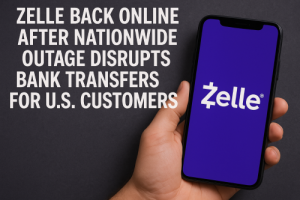FDA Recalls Thousands of Pounds of Ground Coffee Over Decaf Labeling Mistake—Consumers at Risk

FDA recalls thousands of pounds of ground coffee mislabeled as decaffeinated
Consumers Beware: Your Decaf Coffee Might Not Be Decaf After All
If you rely on decaffeinated coffee to avoid caffeine for health reasons or personal preference, you might want to double-check your latest purchase. The U.S. Food and Drug Administration (FDA) has issued a recall for thousands of pounds of ground coffee that were mistakenly labeled as decaffeinated. This alarming mislabeling could have serious consequences for individuals sensitive to caffeine or those with medical conditions that require them to limit their intake.
What You Need to Know About the Recall
According to the FDA, the recall affects multiple batches of ground coffee that were distributed nationwide. The affected products were sold in retail stores, online marketplaces, and possibly even served in some cafés. The issue came to light after customers reported experiencing unexpected caffeine-related symptoms despite consuming coffee marketed as decaf. Laboratory testing confirmed that these batches contained caffeine at levels comparable to regular coffee.
The mislabeled coffee was produced by a well-known brand, though the FDA has not yet disclosed whether the issue was due to a manufacturing error, a labeling mix-up, or a quality control failure. However, the agency is urging consumers to check the packaging of their decaffeinated coffee against the recalled batch numbers.
Why This Recall Matters
For most people, drinking a cup of regular coffee instead of decaf might not seem like a big deal. But for individuals with heart conditions, anxiety disorders, or caffeine sensitivities, consuming caffeine unknowingly can lead to significant health issues, including:
- Increased heart rate and blood pressure
- Jitters and nervousness
- Insomnia or disrupted sleep patterns
- Digestive discomfort
The FDA emphasizes that this recall is particularly important for pregnant women, individuals with cardiovascular concerns, and those advised by their doctors to avoid caffeine altogether.
How to Identify and Return Affected Products
If you recently purchased decaffeinated ground coffee, take the following steps to determine if your product is part of the recall:
- Check the packaging – Look for the brand name, production lot number, and expiration date listed on the FDA’s official recall notice.
- Contact the manufacturer – If you’re unsure whether your coffee is affected, reach out to the company’s customer service for confirmation.
- Stop using the product immediately – If your batch number matches the recall list, discontinue use to avoid potential health risks.
- Return or dispose of the product – Many retailers will offer refunds for recalled items, so check with the store where you made the purchase.
FDA’s Response and Next Steps
The FDA is working closely with the manufacturer to investigate how the mislabeling occurred and to prevent similar incidents in the future. Additional testing and inspections are being conducted to ensure that all mislabeled products are pulled from shelves. The agency is also urging retailers and distributors to cooperate in notifying customers who may have purchased the affected coffee.
In the meantime, consumers who experience adverse reactions after drinking mislabeled decaffeinated coffee are encouraged to report their symptoms to the FDA’s MedWatch program. This helps the agency track and address any further risks associated with the recalled product.
This recall serves as an important reminder for consumers to remain vigilant about food and beverage labeling. While mistakes happen, mislabeling caffeine content in a widely consumed product like coffee can have serious health implications for certain individuals. If you depend on decaf coffee for health reasons, take the time to verify that your purchase is truly caffeine-free.
Stay informed, check recall updates regularly, and always trust your body’s signals—if something feels off after drinking decaf, it’s worth investigating further.




